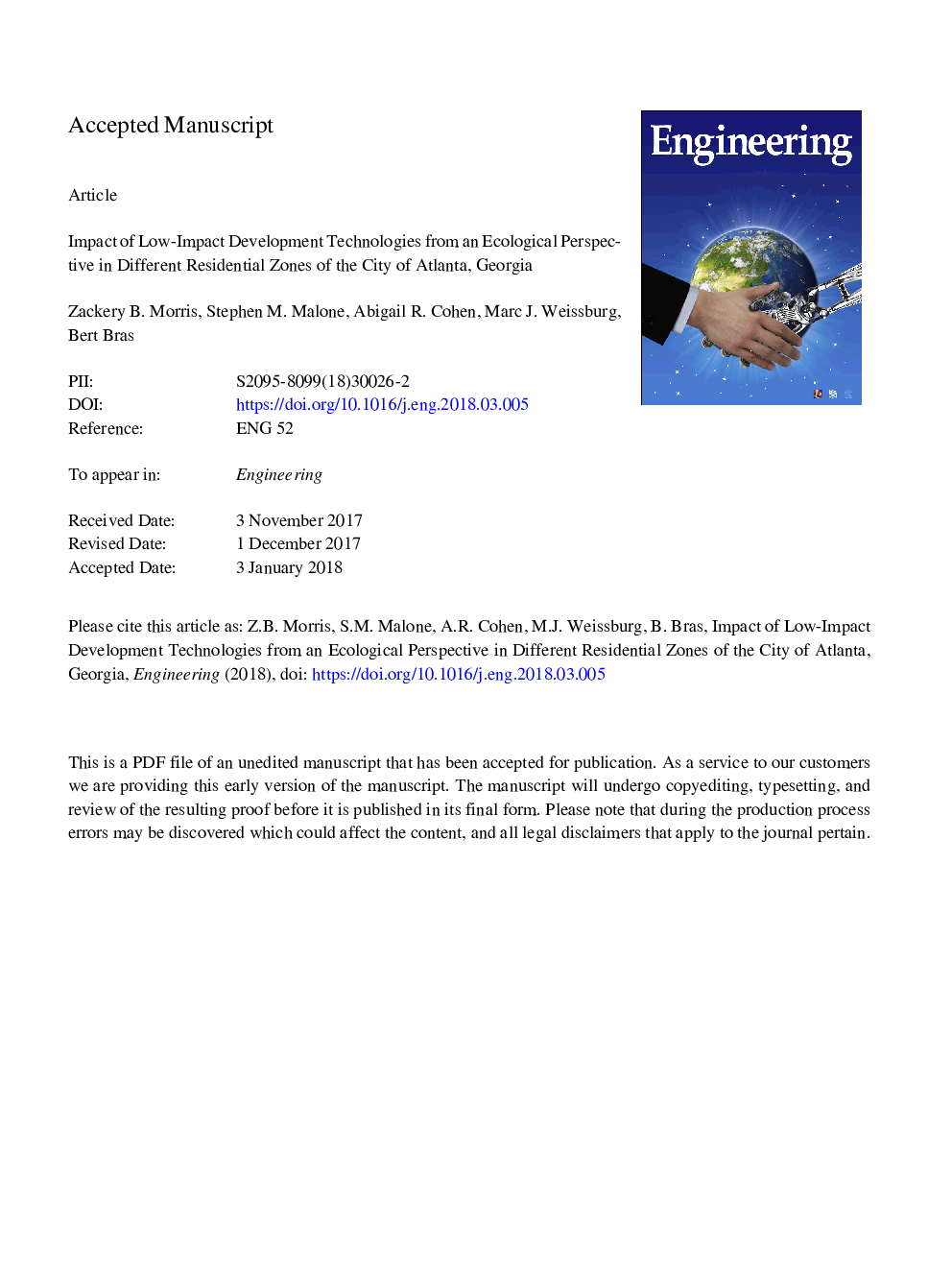| Article ID | Journal | Published Year | Pages | File Type |
|---|---|---|---|---|
| 6893306 | Engineering | 2018 | 10 Pages |
Abstract
Low-impact development (LID) technologies have a great potential to reduce water usage and stormwater runoff and are therefore seen as sustainable improvements that can be made to traditional water infrastructure. These technologies include bioretention areas, rainwater capturing, and xeriscaping, all of which can be used in residential zones. Within the City of Atlanta, residential water usage accounts for 53% of the total water consumption; therefore, residential zones offer significant impact potential for the implementation of LID. This study analyzes the use of LID strategies within the different residential zones of the City of Atlanta from an ecological perspective by drawing analogies to natural ecosystems. The analysis shows that these technologies, especially with the addition of a graywater system, work to improve the conventional residential water network based upon these ecological metrics. The higher metric values suggest greater parity with healthy, natural ecosystems.
Related Topics
Physical Sciences and Engineering
Computer Science
Computer Science (General)
Authors
Zackery B. Morris, Stephen M. Malone, Abigail R. Cohen, Marc J. Weissburg, Bert Bras,
